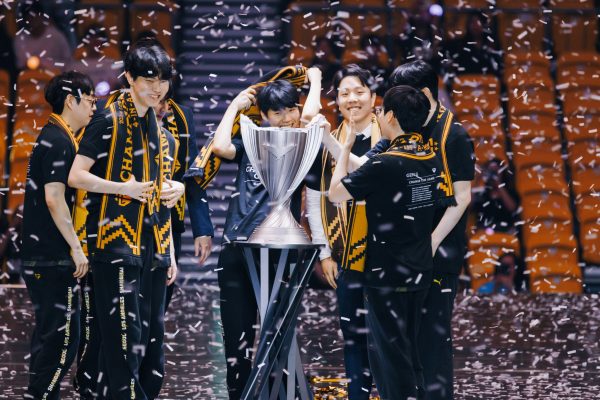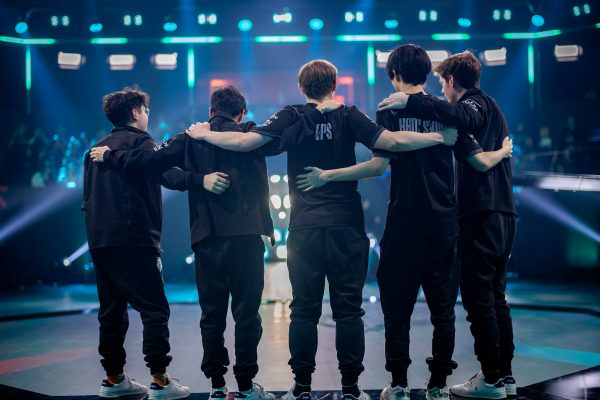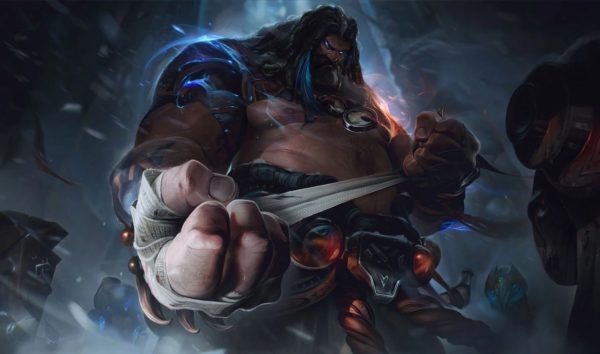Few more memorable personalities emerged from the earliest beginnings of League of Legends esports than Henrik “Froggen” Hansen. A top-tier player competing at an internationally competitive standard for nearly a decade now, Hansen has been the focal point of almost all the rosters he’s been on. Deadly with his mastery of control mage champions, but equally adaptable to the latest meta, Froggen is a matchup opponents on any competitive level are forced to prepare for.
From Europe to North America, Froggen has carved out a niche as one of the most formidable mid lane matchups.
But while almost all of his early peers have moved on to other roles within the scene – streamers, team owners, casters, or simply moved away from LoL for good, Froggen remains. The mid laner has stayed put as one of the premier players in the west, whether playing in Europe or North America. Since his debut in top-level competition in Season 2, right until his latest LCS split, Froggen has carved out a legacy of cunning, pace-setting play that forced his opponents into mistakes they’d rather not make.
However, despite competing at the highest level for so long, Froggen’s trophy cabinet has remained disappointingly bare. His performances in 2012 and a trip to Worlds in 2014 hinted at an internationally competitive player who could hold his own against the very best. But somehow, despite his mastery of a more controlling playstyle, and his incredible experience, the Danish native and NA import has struggled to return to LoL’s most significant stage again.
Early Career
A young Froggen first adopted his moniker playing Counter-Strike and Warcraft III. But it wasn’t until he was introduced to League of Legends by his brother that he realized “professional gamer” was a possible way to make a living. By 2011, he’d gained enough recognition in solo queue to start joining competitive teams. However, during that first season of LoL esports, Froggen fell short of notice by top organizations. Instead, he slummed it with squads such as we kill stuff and LoLLeague until later in the year. Following the first League of Legends World Championships, Hansen, on the verge of turning 18, was recruited into Team Infused, and later in the year Absolute Legends.
Before the more rigid formalization of the lane meta, the youthful Froggen made waves in LoL as AP Carry. This naturally made him a prime candidate to become a mid laner, and as the role solidified, the middle lane would become his home. Adept with Orianna, Twisted Fate, but most notably, Anivia, the Dane quickly attracted attention as a formidable player of these “control mage” style champions.
In a 2017 interview for Riot Games, Froggen reflected on his aptitude with control mages, and believed his extreme skill with Anivia made him better at more commonly played picks. Despite the champion’s rarity in the meta, Anivia would remain a pocket pick for Froggen, sitting as his second most-played champion in competitive play since Season 3. Only an unremarkable 16 game stint of Viktor play in Season 6 would prevent the frost phoenix from being his most-played champion.
But even with this burgeoning talent and a strong individual playstyle, the beginning of Froggen’s career was characterized by an absence from significant competition. After all, the DreamHacks, MLG and IEM seasons, which at the time, were equally competitive events to that first Worlds. Froggen missed many of these tournaments, wallowing in a secondary tier of competition until a fortuitous merger.
CLG.EU
In 2012 North American organization Counter Logic Gaming would merge with Absolute Legends. In uniting the rosters, one of the most iconic lineups of the early League of Legends competitive scene was formed. Froggen, playing in the mid lane, was joined by fellow Dane Mike “Wickd” Petersen in the top lane, Scots jungler Stephen “Snoopeh” Ellis, Belgian star support Mitch “Krepo” Voorspoels, and German ADC Peter “yellowpete” Wüppen to form a truly pan-European team – appropriately called CLG.EU.
CLG.EU quickly became one of the top rosters in the scene. Their individual laning was superb, with Froggen able to outplay most in the mid lane with just methodical and decisive control mage play. Jungler Snoopeh could capitalize on Froggen’s often crowd control heavy champions to easily gank his lane, and mid would often snowball.
In one of their first events CLG.EU made a massive statement with a huge win at the Kings of Europe online tournament. The squad swept through the group stage and went undefeated in the playoffs. In the finals against Moscow Five – a team considered the one of best in the world at the time – CLG.EU would win 2-1 in a display that cemented them in the top-tier of European teams.
During that victory, Froggen was a standout, showing off both his trademark picks and his versatility. He flexed his Anivia in game one, ending the game with a 6/0/9 scoreline. In the team’s loss, he played Ahri, and still showed off his dominance, defeating Alex Ich in lane. In the victorious match, Froggen played Cassiopea and showed just how versatile he could be. Control mages, assassins, or raw AP carries – he was proficient with them all.
CLG.EU’s tenure as a top team would continue with victories in many online tournaments leading to spots at offline events. At DreamHack Summer 2012, the squad 2-0’d M5, earning an invite to the regional finals. After defeating Fnatic, CLG.EU would be heading to the Season 2 World Championships. Before this, the team made a quick stop off in Korea, being invited to Azubu The Champions Summer 2012, an enormous three-month tournament. The team went undefeated, and Froggen became renowned as an internationally talented mid laner, defeating many of the most skilled Korean players in lane, including Jung “RapidStar” Min-sung and Kim “SSONG” Sang-soo. CLG.EU took home second place after a grueling tournament.
But at Worlds, the squad would falter, although not entirely due to their own mistakes. After a dominant group stage defeating Dignitas and the Saigon Jokers, the team advanced to face team WE in the round of eight. But technical problems caused havoc on the matchup. After a 1-1 scoreline to open the series, the third game was postponed due to power failures and connection issues for the offline tournament. Returning to the game later, CLG.EU capitalized on the exhaustion of their opponents to grind out a hard-fought victory. But perhaps fatigued themselves, the squad were overpowered by Azubu Frost – a team they’d defeated at Champions Summer just a few months prior. CLG.EU finished the event in 3rd-4th place.
The team would participate in sporadic events during the offseason, but prior to the start of Season 3, the team declined to renew their contract with CLG. Just as League of Legends esports was taking on a new shape, the roster of Krepo, Snoopeh, Wickd, yellowpete, and Froggen would take on a new mantle.
A Spate of Genius & Froggen DDOS
With rumblings about regional exclusivity for organizations, and the rapid balkanization of the scene as the whole, the squad decided to sign with Evil Geniuses, another NA team, but one who’d committed (for now) to European competition. As the inaugural season of the EU LCS began, EG found themselves swamped by an influx of top talent on opposing teams. Despite their dominance in Season 2, the team failed to stand out among the likes of Fnatic, SK Gaming, Gambit Esports, and others.
Even Froggen looked to be sometimes baffled by the incredible amount of talent in Europe, developing heated rivalries with many of the mid laners, including Enrique “xPeke” Cedeño Martínez and Alex Ich. The middle lane was the iconic position for Europe in this time period, with later talents like Søren “Bjergsen” Bjerg and Nicolaj “Incarnati0n” Jensen forged in the fires of this competition. Froggen, on a good day, could beat any one of these opponents, but he often found himself outmatched. The team finished the Spring Split of EU LCS with a record of 15-13, narrowly reaching the playoffs.
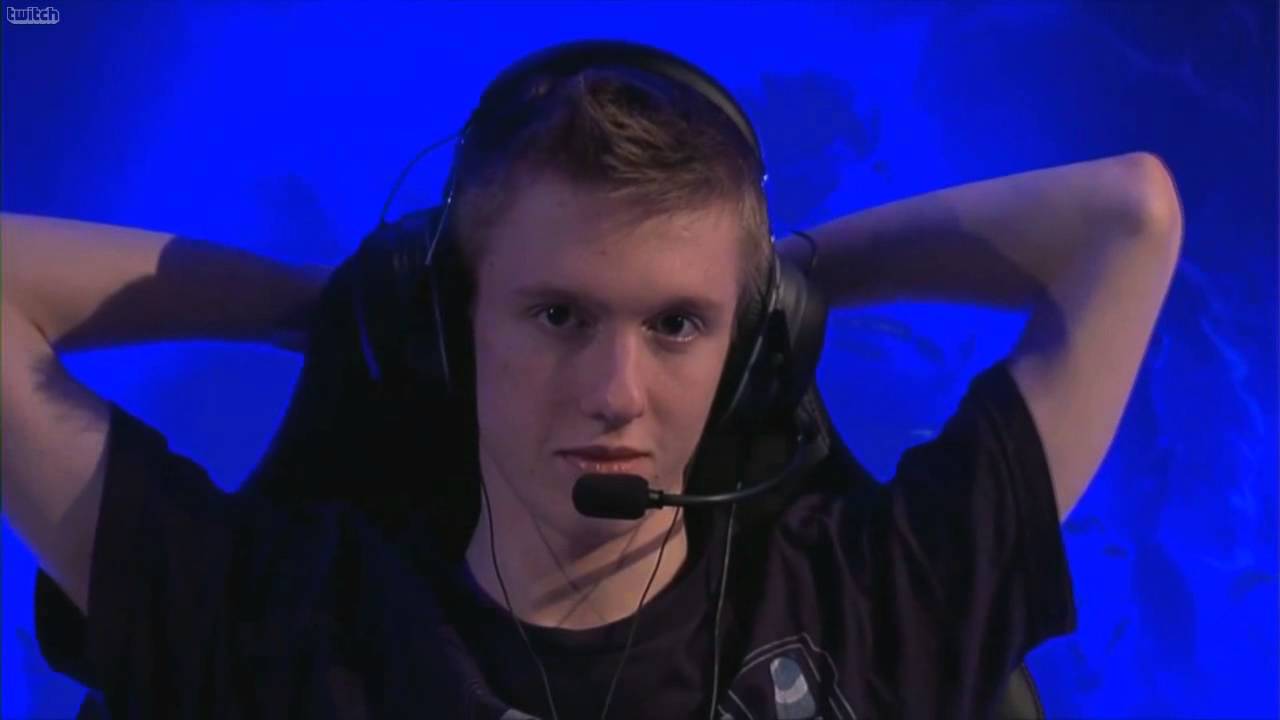
Froggen stares into the camera during a match versus Gambit Esports. (Photo courtesy Riot Games)
The team quickly found themselves fighting for third place against SK Gaming in the playoffs. Here, SK’s more modern style of play was trumped by the methodical, more Season 2-style of EG. EG employed tactics such as “death bushes” – waiting in an un-warded bush for SK to face check. By grinding the series out for close to an hour for each win, the team secured a spot in the Summer Split and a trip to IEM Season VII. Froggen’s play here wasn’t pretty, but it was effective.
Around this time, the notorious “Froggen DDoS” meme came to prominence. CLG.EU’s biggest rivals were SK Gaming for several reasons. Wickd and Snoopeh were both SK Gaming alums, and team captain Carlos “ocelote” Rodríguez Santiago was fond of fostering rivalries and trash-talking. Amid this rivalry, ocelote was allegedly hit with a distributed denial of service (DDoS) attack while streaming, which caused the current G2 Esports founder to launch into an angry tirade. Informed (incorrectly) by a friend that Froggen was responsible, ocelot jumped on the accusation, suggesting that his rival mid laner was purposely DDoSing him to prevent him from scrimming with SK.
The story was, of course, completely untrue. But the passion of Carlos’ rant, and the easy to remember the phrase of “Froggen DDoS” combined into a perfect meme. Fans quickly began spamming FROGGEN DDOS in Twitch chat anytime there were connection issues during games. The meme would eventually follow Froggen to NA and persists to this day, although it has died down a lot since the end of Season 4.
While Froggen was gaining infamy for alleged cybercrime, his teammates earned accolades or stepped away from competition. Wickd became the first streamer to have 130,000 viewers on steam, while yellowpete headed to All-Stars in Shanghai. As summer rolled around, Snoopeh opted to take on a substitute role while Mojtaba “Shacker” Aflaton moved into the Jungle on a temporary basis. Krepo began to split time with Christoph “nRated” Seitz.
As the 2013 EU LCS Summer Season continued, it was Krepo, rather than Froggen, who earned attention in the mid lane. During a tiebreaker against Gambit gaming, the pair swapped roles, with Krepo, a former mid laner, using Anivia, and Froggen picking support Blitzcrank. The swap confused and bewildered the opponent’s Gambit Gaming (the old Moscow Five).
But even with their deception and tricks, the season ended heartbreakingly for EG and Froggen, as Gambit Gaming defeated EG in a rematch in the playoffs. The team missed out on the Season 3 World Championships by just a single game, and with this loss, an era was ending.
A New Chapter and the Super Team
The team splintered in the offseason, with EG moving to North America and taking Snoopeh, yellowpete, and Krepo with them. Froggen was left teamless. Wickd and Froggen were left to fend for themselves, and the pair set to grinding solo queue.
The winter offseason saw rumblings of “Froggen’s Super Team.” Froggen was the centerpiece of the lineup, with the ever-reliable Wickd in the top lane. For a jungler, the team reached out to Ilyas “Shook” Hartsema who’d been banned for the duration of Season 3, but was once again able to play. Many ideas for who would be the final pieces were rumored, including former Moscow Five rival Edward “GoSu Pepper” Abgaryan and Aleš “Freeze” Kněžínek. The final lineup would include Erik “Tabzz” van Helvert, while the team searched for their support, settling on Patrick “Nyph” Funke in December.
This “super team” was picked up by the recently formed Alliance organization, who’d quickly expanded since their April 2013 founding to encompass as many esports titles as possible. With Froggen at the helm, the squad looked unstoppable, with early scrim reports saying that they were undefeatable.
But for whatever reason, as the split began, the team floundered. Through almost the entirety of the Season 4 Spring Split, the team looked miserable, heading into week 8 with a dismal 2-6 record, and only a longshot of even reaching playoffs. Rallying the squad, Froggen led the team into a super week of four games, winning each one, and being named MVP. He even managed to break out Anivia during one of the victories. In what would be called a “miracle run” in today’s terms, the team rocketed up the rankings to third and second place and headed into the final week the season at the top of the table in an incredible turnaround in fortune. The team headed into the playoffs with Froggen names MVP of the split, and seemingly on top of the world.
Despite floundering in the playoffs, the Alliance super team headed into the next split with a tremendous amount of confidence. The team was dominant, playing with an intensity rarely seen in the EU LCS. Froggen, in particular, stood out. He seemed unstoppable on many champions. His Anivia took the back seat to a deadly series of Xerath games. This was augmented by incredible performances on Twisted Fate and Nidalee, which saw him become known as a maven with skill shots during this time period. The team rocketed into the playoffs with a chance to head to the World Championships.
There, Froggen would clash with two of his biggest rivals; xPeke and ocelot. In a semi-final best-of-five, Froggen would put the team on his back to defeat ocelot, sending SK Gaming to a third-place matchup after beating them 3-1. In the finals, the first EU finals of Froggen’s career, the mid laner would clash with xPeke in one of the great Mid matchups of the era. Froggen dominated on a mix of meta assassins and his signature champions, preventing Fnatic’s mid laner from making an impact. Another 3-1 victory was his reward and a trip to Worlds Season 4.
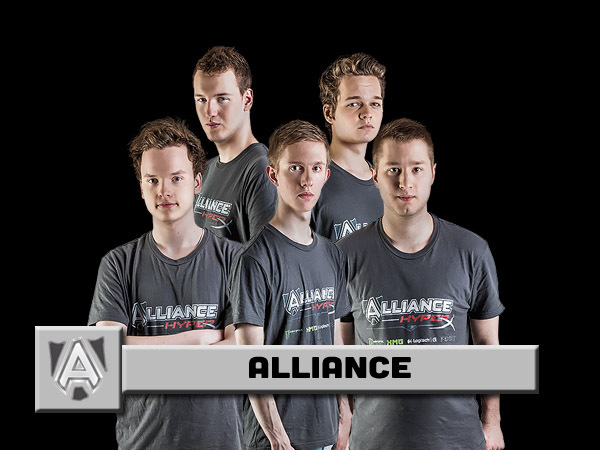
Alliance with their Worlds Season 4 lineup. (Photo courtesy Riot Games)
But sadly, this is where the Alliance super team’s run would end. In a stacked group with Cloud9, Najin White Shield, and the legendary upset-causing KaBuM! e-Sports, Alliance would end the opening stage with a 3-3, ending their run with a loss to KaBuM! Even with the disappointing end to the remarkable run, this was a clear showcase of Froggen’s ability. He could be a dominant force in his region with the right players, and an international threat if given a chance. His Ahri, in particular, had caused mayhem against C9 and Najin, and his Anivia was banned in many of the Worlds 2014 games.
In January, Alliance was forced to rebrand as Elements due to Riot’s official ruling regarding GoodGame Agency, one of Alliance’s sponsors. The team would struggle to replicate what they had under the new banner, and attempted to compensate with roster swaps. After a disappointing 2015 season that saw Froggen fail to reproduce any of his former success, it was time for a change. Froggen departed Elements for a new challenge, a new region, and a new chance at success.
Across the Atlantic
In late 2015, a venture capital-backed team known as Echo Fox was founded in North America. After purchasing Gravity’s NA LCS spot, it’s lineup was to be a mix of import talent and Challenger scene upcomers. Froggen and Korean solo queue star Park “kfo” Jeong-hun would form the veteran core, joined by Anthony “Hard” Barkhovtsev, and with Terry “Big” Chuong, and Yuri “Keith” Jew forming the NA challenger section.
But the team was marred by visa issues in the 2016 NA LCS Spring Split. Froggen, kfo, and Hard all struggled to gain competitive visas, losing six games with substitutes while these were resolved. The team rallied with its full roster, but ended the season 6-12, narrowly avoiding relegation. This wasn’t the start Froggen had envisioned for his NA debut.
The Summer Season was more stable, although the team occasionally experimented as the meta shifted to see AP champions played more in the top lane. Froggen played one losing effort in top before the switch, although his mid lane efforts were going little better. For one, the talent of NA mids had increased substantially, with many of his former EU solo queue opponents now holding starting spots. Bjergsen and Nicolaj “Jensen” Jensen, who Froggen would have clashed with in European solo queue as “Incarnati0n,” were top-level import talents. The Season 2 veteran was looking decidedly old-fashioned compared to this pair of players.
As a result, Echo Fox ended their inaugural season with another disappointing split. The team found themselves battling for survival in the 2017 Spring Promotion, in one of the lowest tiers of competition Froggen had ever competed. Still, the now firmly veteran player was able to exploit a Team Liquid Academy lineup that just wasn’t on par with his abilities.
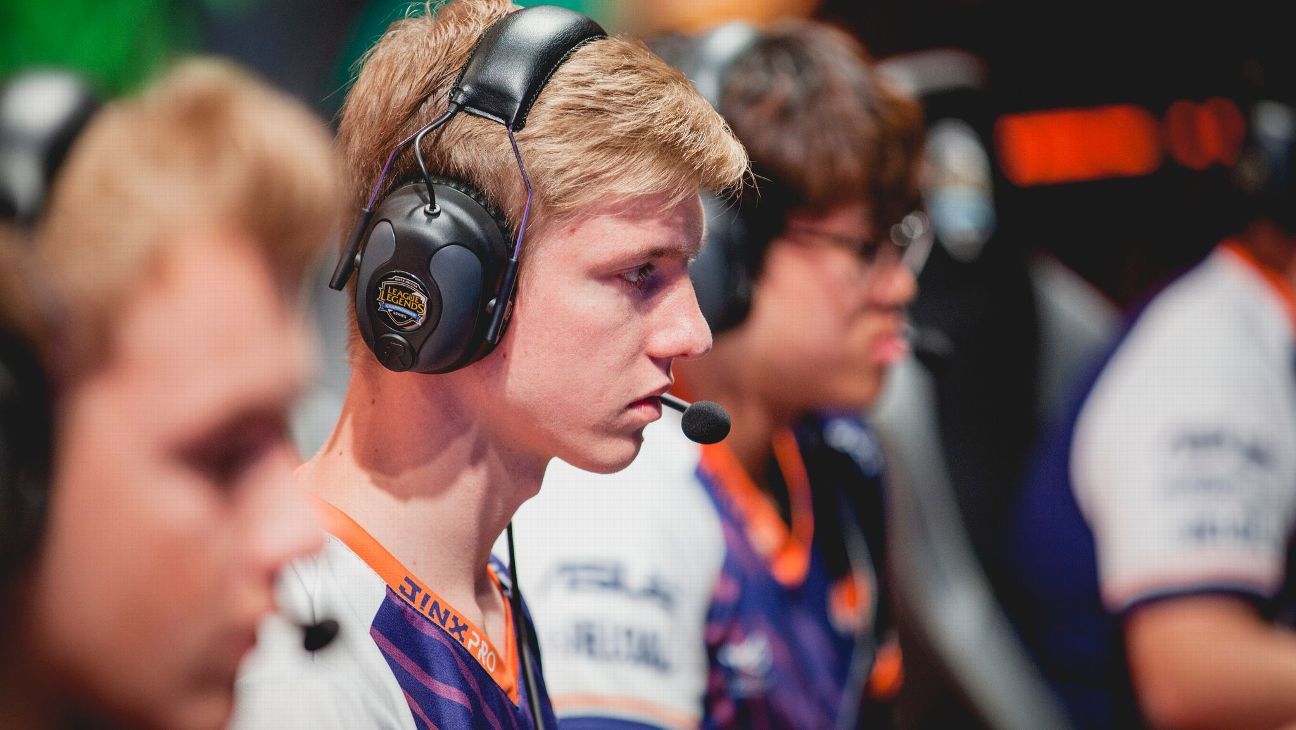
Froggen’s debut in North American LoL did not get off to the start expected. (Photo courtesy Riot Games)
Returning to the LCS for 2017, the team swapped kfo for Jang “Looper” Hyeong-seok, picking up Matthew “Akaadian” Higginbotham and Jiajun “Austin” “Gate” Yu to replace the struggling Hard and Big. The team started strong, but as before, they quickly found themselves at the bottom of the table. Froggen was not a standout player during any of their matches, seemingly having lost the spark that once filled his play. After escaping relegation in the Spring Split, the Summer Split fared no better. A 2-0 start to the season would be some of the few victories the team saw, ending again in 8th place with a 5-13 record.
Froggen had failed to make the impact in North America that he’d made in previous years. At the end of 2017, he departed Echo Fox and returned to Europe.
Still Top-Level
The past two years have been a struggle for Froggen, who has seen little improvement in his standing. A brief run with Origen in 2018 seemed hopeful, as it saw the iconic mid laner paired with the legendary Lee Sin innovator Choi “inSec” In-seok. But this turned out to be little more than a gimmick roster that saw Origen fail to qualify through the EU Masters to the EU LCS.
Froggen departed, and returned to North America, yet again, joining Golden Guardians as their starting Mid Lane for the 2019 season. Like so many times before in NA, the Spring Split started well for Froggen, but the teams struggled to the end. For the first time in his career, Froggen would make an NA playoff, competing in the LCS 2019 Spring Playoffs. However, a crushing defeat by FlyQuest saw the team outmatched in its bot lane, crippling Golden Guardian’s chances.
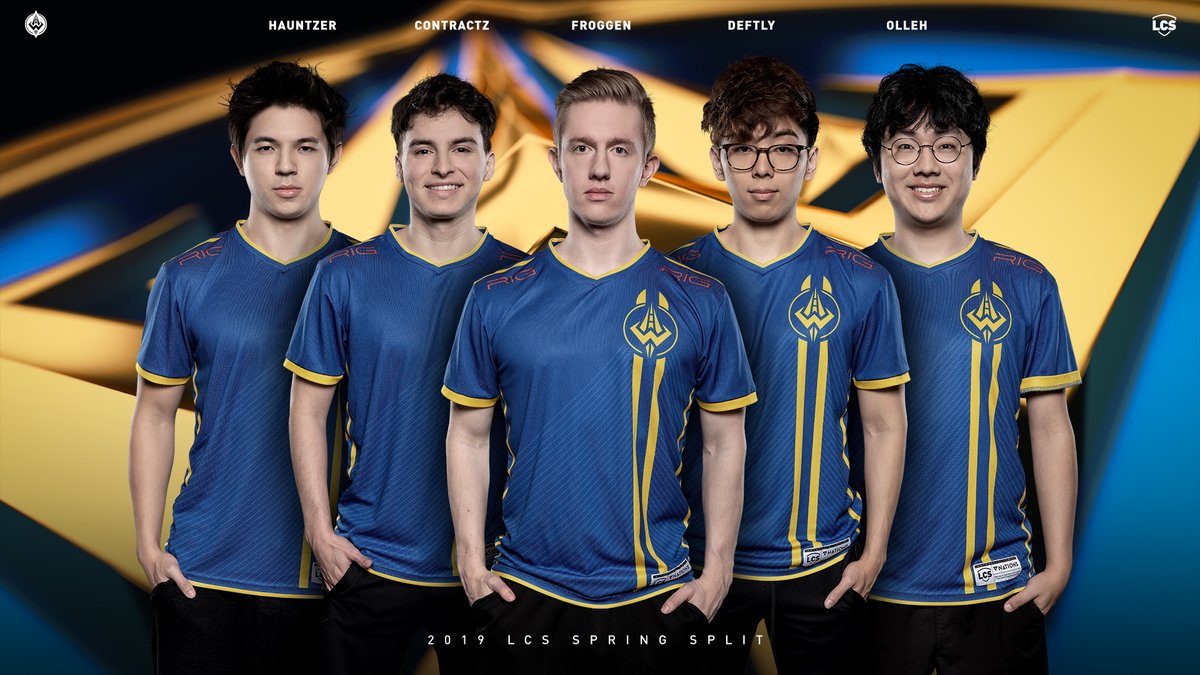
Froggen’s efforts in NA have rarely bared fruit. (Photo courtesy Riot Games)
The team failed to replicate it’s playoff hopes in the Summer Split, and Froggen parted ways in December of 2019. In 2020, Froggen joined Dignitas, again taking up a starting role. But after another disappointing season for the returning NA organization, he was relegated to the Academy lineup. However, the struggling main roster saw Froggen split time with Fenix, as Dignitas attempted desperately to make anything of it’s 2020 season.
Yet, even as Froggen struggles to return to form, there are flashes of brilliance. His Anivia still draws bans, even if it’s often in jest at this point. Given an international stage, perhaps Froggen can replicate the kind of success of the 2012-2014 seasons. In a January 2020 interview, the mid laner mused on his continued career in NA. He lamented a lack of success in the region, especially compared to his unprecedented dominance in the early part of his career. Perhaps with the right team around him, there’s still some international-level play left in the tank for this talented player.
